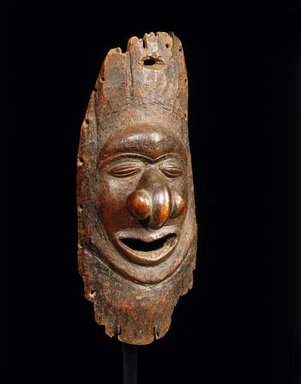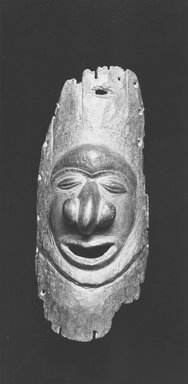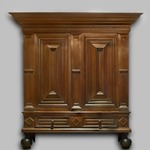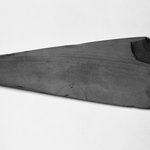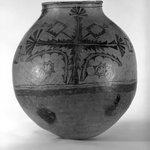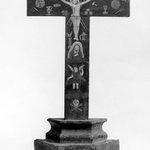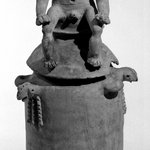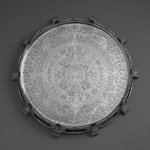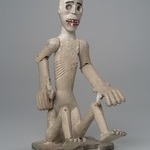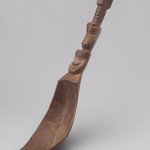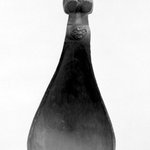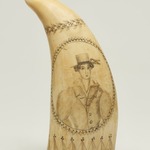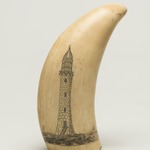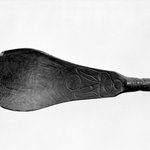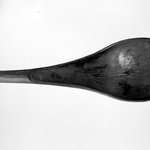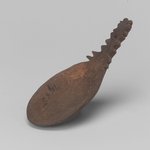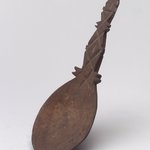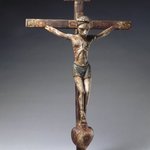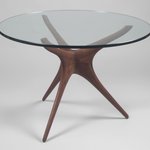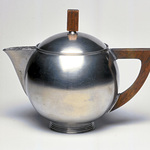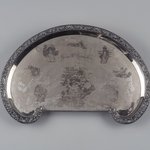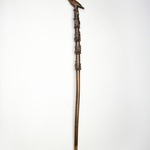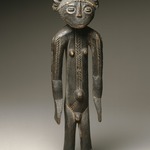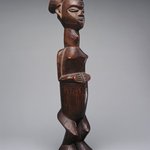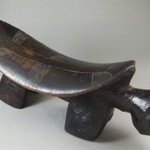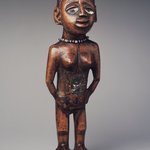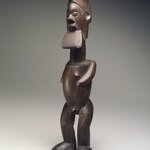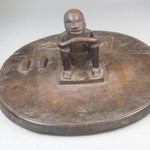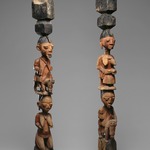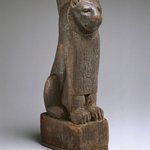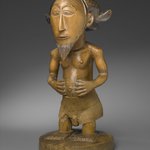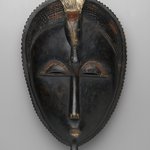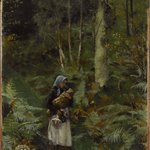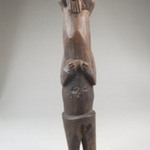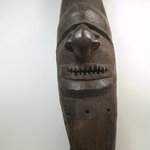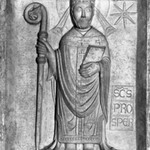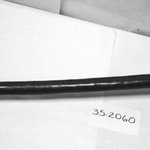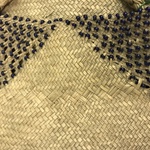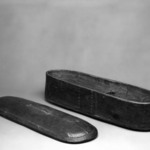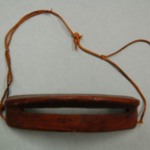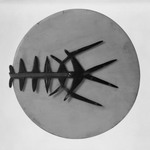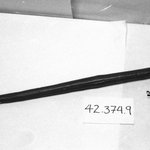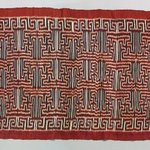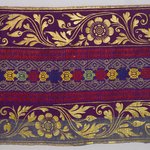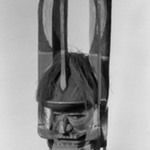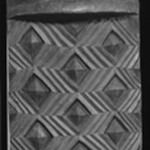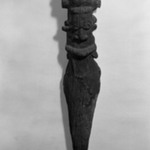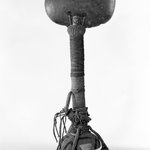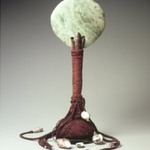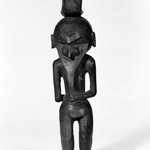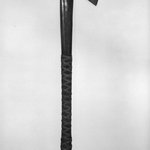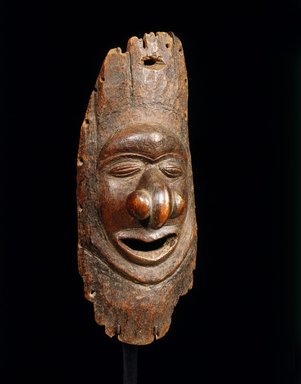
Mask (Pwemwe)
Arts of the Pacific Islands
This striking mask, with its grimacing mouth, bean-shaped eyes, and bulbous, hooked nose, was made in the northern part of New Caledonia. The thick, shiny patina is evidence of the piece's age and considerable use. The holes around the perimeter were used to affix the beard and wig of human hair, a hat, feathers, and other elements of the costume that completely draped to the knees the dancer who wore it. Little is known about the function of these masks, however, though it is usually said that they represent the spirits of ancestors returning to the village. They may have been associated with now-extinct secret men's associations or used in social control.
CULTURE
Kanak
MEDIUM
Wood
DATES
19th or early 20th century
DIMENSIONS
10 1/2 x 4 1/2 x 3 3/4 in. (26.7 x 11.4 x 9.5 cm) (show scale)
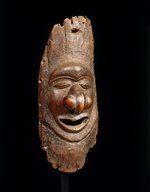


COLLECTIONS
Arts of the Pacific Islands
ACCESSION NUMBER
42.243.19
CREDIT LINE
By exchange
PROVENANCE
Prior to 1942, provenance not yet documented; by June 1942, acquired by Julius Carlebach, New York, NY; June 1942, purchased from Julius Carlebach by the Brooklyn Museum, by exchange.
Provenance FAQ
CATALOGUE DESCRIPTION
Mask fashioned from long, narrow, carved piece of dark wood. The facial features of the mask are carved at the center of the wood. Forehead swells above a continuous V-shaped ridge which defines the eyebrows, eyes are closed (and not perforated), nose is bulbous with spherical nostrils, and mouth is open. Around the perimeter of the piece of wood are numerous small holes; at top center there is one larger hole. There are holes at top and bottom for fastening.These masks were traditionally used for funerary ceremonies of Chiefs and may have been associated with the ancestor god Gomawe. In its complete form, the mask might have been adorned with a beard of human hair and a headdress surmounted by a mass of human hair cut from the heads of mourners. The masker was able to see through the curved mouth, and would wear a cloak made of pigeon feathers. The mask sometimes was painted black, the color painted on the bodies of mourners and symbolic of the roads leading to the land of the dead.
MUSEUM LOCATION
This item is not on view
CAPTION
Kanak. Mask (Pwemwe), 19th or early 20th century. Wood, 10 1/2 x 4 1/2 x 3 3/4 in. (26.7 x 11.4 x 9.5 cm). Brooklyn Museum, By exchange, 42.243.19. Creative Commons-BY (Photo: Brooklyn Museum, 42.243.19_SL1.jpg)
IMAGE
overall, 42.243.19_SL1.jpg. Brooklyn Museum photograph
"CUR" at the beginning of an image file name means that the image was created by a curatorial staff member. These study images may be digital point-and-shoot photographs, when we don\'t yet have high-quality studio photography, or they may be scans of older negatives, slides, or photographic prints, providing historical documentation of the object.
RIGHTS STATEMENT
Creative Commons-BY
You may download and use Brooklyn Museum images of this three-dimensional work in accordance with a Creative Commons license. Fair use, as understood under the United States Copyright Act, may also apply.
Please include caption information from this page and credit the Brooklyn Museum. If you need a high resolution file, please fill out our online application form (charges apply).
For further information about copyright, we recommend resources at the United States Library of Congress, Cornell University, Copyright and Cultural Institutions: Guidelines for U.S. Libraries, Archives, and Museums, and Copyright Watch.
For more information about the Museum's rights project, including how rights types are assigned, please see our blog posts on copyright.
If you have any information regarding this work and rights to it, please contact copyright@brooklynmuseum.org.
RECORD COMPLETENESS
Not every record you will find here is complete. More information is available for some works than for others, and some entries have been updated more recently. Records are frequently reviewed and revised, and we welcome any additional information you might have.
